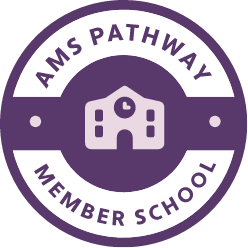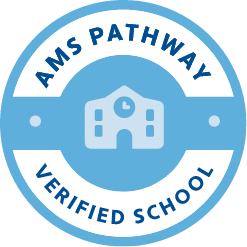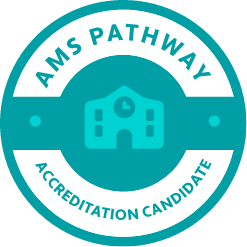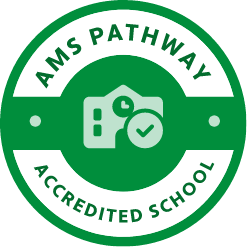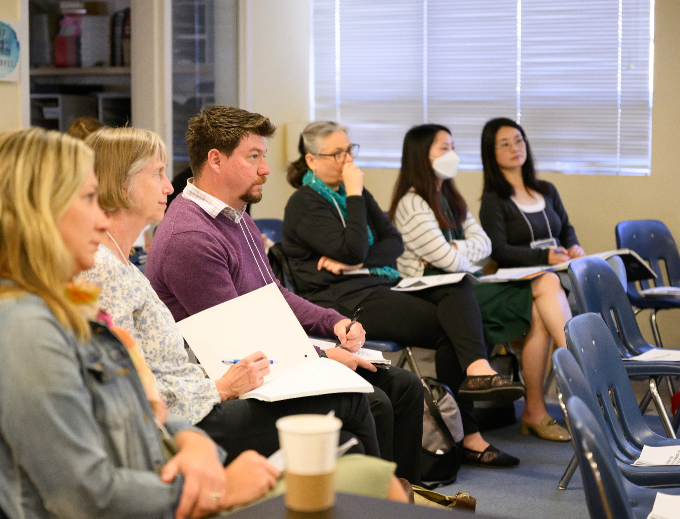
The AMS Pathway
The American Montessori Society Pathway of Continuous School Improvement is a framework that supports member schools in a reflective process, centering Montessori core components and standards in best practices for schools.
Why Complete the Four-Stage Journey?
- Schools that complete the pathway are better aligned with Montessori principles and accreditation standards.
- Member schools get placement on our Find a School directory for increased visibility and an AMS Pathway certificate to verify their advancement.
- As your school advances, you’ll be given access to an updated logo you can use to market your school to your community.
- Be a part of a supportive community that includes AMS staff members and other school leaders as you work through the Pathway process.
- Schools engaging their community in reflective practices strengthen both their programs and their community’s commitment to them.
The Four-Stage Pathway
Stage 1:
Member School
Member schools join AMS for personalized support, exclusive resources, and connecting with other school communities.
Stage 2:
Verified School
A member school becomes verified once AMS confirms they uphold the 5 core components of Montessori Education.
Stage 3:
Accreditation Candidate
To be a candidate for accreditation a school must be verified, meet the prerequisites, and have an approved application.
Stage 4:
Accredited School
A school earns AMS accreditation after writing a self-study and hosting a visiting team that verifies compliance with our accreditation standards.
Maintaining AMS Verification
AMS School verification terms are 3 years. At the end of the term, a school must go through verification again.
Follow these steps to maintain your verification:
- Maintain AMS school membership for each school site.
- Continue to implement the 5 core components of Montessori education.
- Submit the annual report with specific updates on action plans, if any, by June 30.
- Inform AMS of any substantive changes at your school, i.e. change in leadership or ownership, relocation or significant change in facilities, opening or expanding a program.
- Every 3 years, schools will update their commitment to the core components by submitting a verification renewal form.
Interested in starting the process?
Set an appointment for an orientation session
Connect with us.
@americanmontessori
